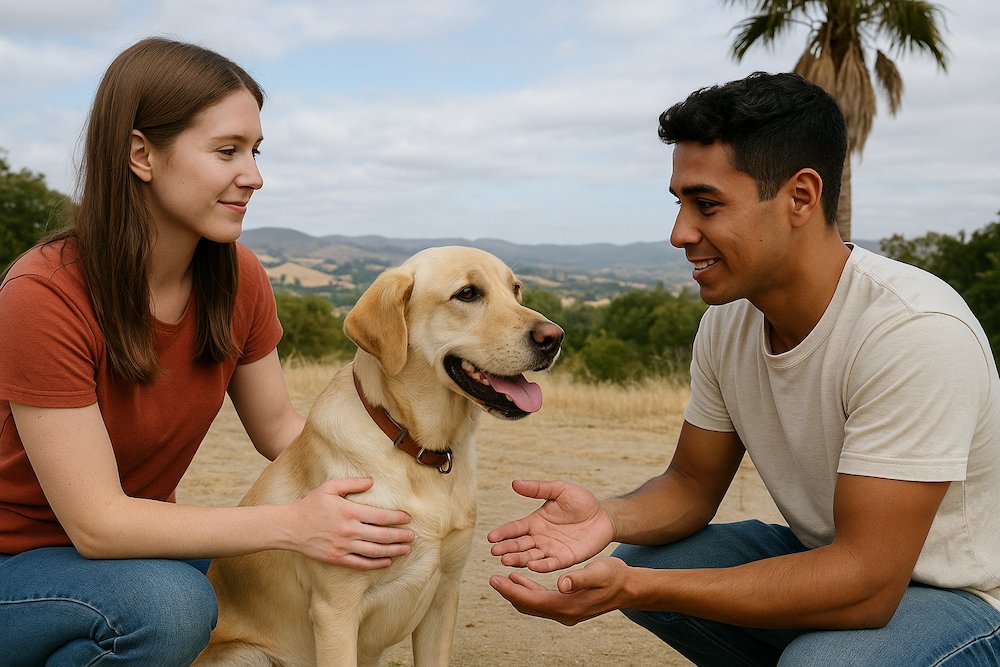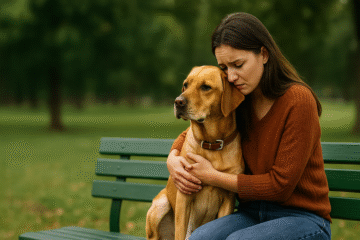
Rehoming a Dog in Florida: What You Need to Know
Rehoming a dog is never an easy decision — but sometimes it’s the most responsible and loving choice. Whether you’re moving, facing financial hardship, dealing with allergies, or simply unable to meet your dog’s needs, finding them a safe new home can offer peace of mind for both you and your pet.
If you’re in Florida and considering rehoming, here’s everything you need to know to do it legally, safely, and compassionately.
🧾 1. Florida Law: Health Certificate Requirement
In Florida, it’s legally required to provide an Official Certificate of Veterinary Inspection (CVI) — also known as a health certificate — if you are transferring ownership of a dog to someone else, even in a private rehoming situation.
✅ What does this include?
- Up-to-date vaccinations (especially rabies)
- Proof of good health from a licensed vet
While this rule is often overlooked in casual rehoming, it’s a good practice to protect both your dog and the new owner.
📆 2. Make Sure Your Dog is Ready
Before you list your dog for rehoming:
- Make sure they are spayed/neutered (if possible)
- Get their vaccinations updated
- Gather medical records and microchip info
- Take some clear photos showing your dog’s personality
Your dog’s best chance at a new forever home is a well-prepared listing with honest information.
📣 3. Where to Rehome Your Dog in Florida
Skip sketchy classifieds or random social media posts. Instead, use trusted, pet-focused platforms like:
- ✅ PetSalesFlorida.com – Free listings, secure messaging, and statewide visibility
- 🐾 Local rescues and no-kill shelters (ask if they allow courtesy listings)
- 🏘️ Neighborhood apps like Nextdoor (use with caution)
Posting your dog on a local, Florida-specific site increases your chances of finding a nearby, loving home fast.
🐕 4. Be Honest in Your Description
Include:
- Dog’s age, breed, temperament
- Any quirks or behavioral needs (e.g., anxious around kids, doesn’t like cats)
- Medical conditions, if any
- Reason for rehoming
Transparency builds trust — and helps ensure your dog doesn’t end up in the wrong environment.
🔎 5. Screen Potential Adopters Carefully
Even if you’re in a rush, don’t skip this step. Ask questions like:
- Do you rent or own your home?
- Do you have other pets or kids?
- Have you owned a dog before?
- How many hours per day will the dog be alone?
Meet in a public place if you’re unsure, and consider bringing a friend along.
📑 6. Use a Rehoming or Adoption Agreement
Protect your dog (and yourself) by having the new owner sign a simple adoption contract. Include:
- Your contact information
- Dog’s medical and behavior history
- A clause asking to be contacted if the dog ever needs to be rehomed again
You can find free adoption agreement templates or request one from PetSalesFlorida.com.
🎁 7. Send Them Off With a Care Package
To make the transition smoother:
- Pack their favorite toy or blanket
- Include a few days’ worth of current food
- Write a note with care instructions or tips
This helps your dog settle in more easily with their new family.
❤️ Final Thoughts
Rehoming a dog is emotional, but when done right, it can be the best decision for both of you. By following Florida’s guidelines and taking responsible steps, you’re giving your dog a chance at a happy, stable future — and giving yourself peace of mind.
✅ Ready to Rehome? Start Here:
Create a free listing on PetSalesFlorida.com and connect with caring adopters near you.
Fast. Local. Judgment-free.










